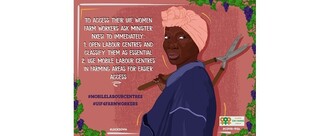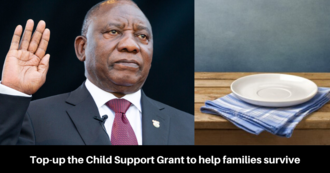- Featured
- Clean air
- Climate justice
- Consumer Rights
- Corporate Accountability
- Data access
- Early Childhood Development
- Economic fairness
- Education
- Electoral fairness
- Environmental justice
- Food justice
- Gender based violence
- Grants/social assistance
- Health
- Housing and infrastructure
- Industry interference
- Land Justice
- LGBTQIA+ rights
- Media/ information access
- Public transport
- Racism
- Reparations
- Safety
- Sanitation
- Service Delivery
- Sexual and Reproductive Rights
- Social justice
- Unemployment
- Womxn's rights/ gender equality
- Workers' rights
- More
-
Lindiwe, what happened to the R600 million in Rent Relief?On 21 July 2020 the Minister of Human Settlements, Water and Sanitation Lindiwe Sisulu announced in her budget vote speech that her Department planned to allocate R600 million towards rental relief to tenants in affordable housing facing financial distress due to the COVID 19 pandemic. The funding, aimed at tenants in ‘formal affordable housing’ was meant to help those facing potential homelessness to meet their monthly rental obligations. This in turn would assist landlords who depended on rental income to survive. In her speech, the Minister made the undertaking that the details of the rent relief for such tenants would be published 30 days after her address.[2] IT IS NOW MORE THAN EIGHT MONTHS FOLLOWING THIS COMMITMENT AND NO DETAILS OF THE RELIEF SCHEME; NO POLICY PUBLISHED, AND NO FUNDING HAS BEEN RECEIVED BY TENANTS, WHO MAKE UP SOME OF THE PEOPLE HARDEST HIT BY THE PANDEMIC IN OUR COUNTRY. The stark reality is that between 2.2 and 3 million people lost their jobs in the first months of lockdown.[2] This has created a situation where households are caught in a double bind between maintaining their shelter and having enough food and water to stay alive. Correspondingly, the TPN Residential Rental Monitor for the fourth quarter of 2020 found that low end tenants had the weakest rental payment performance. Specifically, the report states that: “the “Less than R3,000/month” rental segment is populated by the most financially fragile tenant population, with significantly fewer financial “buffers” with which to weather any storms that translate into income loss, or those unexpected household expenses that arise periodically.” [3] In fact, the undertaking to provide R 600 million in rent relief was made to prevent the crisis that many of the 3 720 000 tenants [4] living in South Africa may now find themselves in. Albeit too little too late for tenants who have fallen victim to unlawful action by landlords and service providers across the country.[5] The consequences of these shortcomings taken together might be even more dire: on 9 March 2021, DA Shadow Minister of Cooperative Governance and Traditional Affairs, Mr Cilliers Brink announced that the party is calling for the urgent lifting of Alert Level 1 lockdown regulations stating that the regulations make it “close to impossible” for property owners to obtain eviction orders.[6] We are teetering on the brink of a secondary national disaster where we stand to exacerbate a health crisis into a homelessness crisis. The former UN Special Rapporteur on the Right to Housing Leilani Farha has cautioned that “[i]n the face of this pandemic, a lack of access to adequate housing is a potential death sentence for people living in homelessness”[7]. Home has rarely been more of a life or death situation – Housing remains Healthcare! JOIN US IN DEMANDING THAT THE NATIONAL DEPARTMENT OF HUMAN SETTLEMENTS, WATER AND SANITATION DO THEIR JOB URGENTLY. [1] https://www.gov.za/speeches/minister-lindiwe-sisulu-human-settlements-dept-budget-vote-202021-21-jul-2020-0000# [2]https://cramsurvey.org/wp-content/uploads/2020/07/Spaull-et-al.-NIDS-CRAM-Wave-1-Synthesis-Report-Overview-and-Findings-1.pdf [3]https://www.tpn.co.za/Group/Home/Media [4] http://www.statssa.gov.za/publications/P0211/P02114thQuarter2020.pdf [5] https://www.iol.co.za/personal-finance/government-needs-to-subsidise-tenants-rentals-50528669 http://www.statssa.gov.za/publications/P0318/P03182019.pdf [6]https://www.da.org.za/2021/03/da-calls-for-lifting-of-lockdown-regulations-to-restore-private-property-rights [7]https://www.ohchr.org/Documents/Issues/Housing/SR_housing_COVID-19_guidance_rent_and_mortgage_payers.pdf1,724 of 2,000 SignaturesCreated by Mpho Raboeane
-
Call on the North West Provincial Government to release the Mafereka Commission ReportHelp us strengthen the voices of the Bapo Ba Mogale community in their quest to make the findings of the Mafereka Commission report public. We need your support today! Our demand: We call upon the North West premier to release the Mafereka Commission Report. A report that will assist the Bapo Ba Mogale community in establishing a proper governance structure. The Mafareka Commission is one of many commissions of inquiry established by the North West Province to fact-find the existence of a rightful traditional leadership. Commissions of inquiry should advance values of accountability and participatory democracy. In the absence of transparency, affected communities and interested parties are unable to engage the findings of the commission and the purpose of the commission becomes compromised. [1] https://www.corruptionwatch.org.za/nw-silence-on-mafereka-report-infuriates-mining-communities-2/ [2] https://www.corruptionwatch.org.za/mining-communities-lack-proper-governance-and-support/545 of 600 SignaturesCreated by Corruption Watch
-
Call on SA Government to Back Mass Farmer Strike in India!Since the 26th of November 2020, tens of thousands of farmers have camped near the border of New Delhi, the Indian capital. On that day, an alliance of national trade union federations called a nationwide strike which converged with a march on Delhi by the All India Kisan Sangharsh Co-ordination Committee (AIKSCC), a united front of over 250 farmer organisations. Large parts of the country came to a halt as direct action was undertaken. Protesting farmers were met with unacceptable police brutality - blockades, teargas, baton charges and water cannons - in a bid to prevent them from reaching the centre of Delhi. In South Africa we are all too familiar with the use of brutal police tactics to suppress popular protest and we condemn the use of these tactics against our comrades in India. The striking farmers have declared that they will not return home and the strike will not cease until the agriculture laws are repealed entirely. They will not be moved and we salute their resolve. India’s agriculture industry employs more than half of its population of nearly 1.4 billion people. The country is in the middle of an unprecedented economic decline, experiencing the worst recession in nearly 30 years. Socio-economic inequality is staggering. As South Africans we are also aware of how closely-linked unemployment and socio-economic inequality is to hunger. India’s new agriculture laws were passed despite a lack of consultation with agriculture experts and the leaders of farmer organisations. These laws threaten the acquisition of produce by state-run organisations at a fixed Minimum Support Price. What this means is that small producers have little bargaining power in the free market system and fear that large corporations will take advantage of this, forcing farmers to sell their produce at a lower price than the price which had previously been guaranteed to them by the government. The laws come at a time where there is increasing conflict and disagreement between farmers and the state, on account of the government turning a blind eye to farmers’ demands for better crop prices, additional loan waivers and irrigation systems to guarantee water in times of drought. They are also framed by the horrific numbers of Indian farmers who have been driven to suicide by debt. All of this is happening within the context of carbon capitalism which is putting the future of humanity in jeopardy and exposing the most vulnerable among us to the effects of the climate crisis. In South Africa, in India and across the world, corporations are not the solution – they are part of the problem. The methods of small scale farmers across the world will not only feed the people, but will also build resilience in the face of the climate crisis. The protection of the knowledge and practices of indigenous communities at the forefront of this movement is also paramount. In the face of oppression and systems of exploitation that stretch across borders, it is necessary for us to globalize resistance and join hands to push back against oppressive policies which threaten the lives of the most vulnerable. Amandla! Inquilab Zindabad!172 of 200 SignaturesCreated by South Africans Against Fascist India

-
Say No to Nuclear Energy plans by 5th FebruaryNuclear power is dangerous, unhealthy and costly. We should instead move toward a just energy transition, investing in and supporting renewable energy (RE) sources. Not only is RE able to create a more inclusive energy landscape – giving formerly-excluded communities more of a chance to be part of the economy – the risks associated with RE are significantly less. Nuclear plants – big or small – are very expensive to set up, often with cost overruns and construction delays. There are a number of reasons to create a groundswell of opposition against nuclear for South Africa’s energy mix. 1. As history has taught us, new nuclear procurement is where large scale corruption can, and has, taken place. In this instance, little to no information has been provided to the public on the cost and feasibility of new nuclear energy. Transparency is needed to build back public trust after past illegal and unconstitutional nuclear deals. 2. Nuclear power is not needed for our energy grid now or in the future. Especially during the covid crisis, we should not be looking at procurement of one of the most expensive forms of energy, but rather investment in more critical areas of need such as vaccines, education and employment. 3. The most recent Energy plan, IRP 2019, does not show necessity for the procurement of nuclear energy. Also no-one can guarantee 100% safety with nuclear energy. Radiation and radioactive waste created at nuclear power stations are extremely toxic. More nuclear power could put the health of workers – most-likely younger people – and communities at risk. Consider for a moment what Electrical Engineer Hilton Trollip points out, “We absolutely do not need Koeberg to avoid load shedding. There are documented and proven sustainable electric systems that can run very well without nuclear and even without coal.” Why then, is our government not more serious or committed to the #JustEnergyTransition? Nuclear is not the long-term solution South Africa needs to resolve the energy crisis, and it certainly will do much less for the economy than renewable energy. References https://ewn.co.za/2017/04/26/western-cape-high-court-rules-sa-nuclear-deal-unlawful-and-unconstitutional https://theconversation.com/why-decommissioning-south-africas-koeberg-nuclear-plant-wont-be-easy-89888#:~:text=The%20potential%20cost%20of%20decommissioning,UK%20model%20at%20R76%20billion https://www.iol.co.za/news/south-africa/western-cape/safety-concerns-over-koeberg-nuclear-plant-as-cape-town-tremors-grow-in-intensity-74d7b088-2840-41ee-a8a7-a40fa83451ee1,231 of 2,000 SignaturesCreated by SAFCEI

-
Tell Netcare, Life Healthcare Group and Mediclinic to protect healthcare workers and save livesFrom 2016 to 2019, Netcare, Life Group, and Mediclinic paid out more to shareholders than they made in profits. They paid out R 19 billion in payouts to shareholders (dividends and share buybacks) in the same period they only made R11 billion in profits. This means that even when these companies were making losses, the shareholders continued to gain millions in wealth. Over the years the pay-outs to shareholders have come at the cost of better healthcare outcomes and better working conditions for healthcare workers. These companies need to step up and show they care about more than shareholder profits. In this time of crisis, we must prioritise the health and wellbeing of all South Africans not just those who are wealthy. Tell Netcare, Mediclinic, and Life that they need to stop shareholder payouts (dividends and share buybacks) till 2022 to ensure that all available resources are prioritized for free regular testing for all healthcare workers, and free medical attention for healthcare workers who contract Covid-19 and adequate (PPEs) for all healthcare workers working in South Africa in public and private facilities. This petition is co-signed by: Young Nurses Indaba Trade Union(YNITU); Oxfam SA; Public Services International (PSI); National Union of Care Workers of South Africa (NUCWOSA); Treatment Action Campaign (TAC); South African Federation of Trade Unions (SAFTU), and Amandla.mobi. Reference: A survey was conducted by Oxfam South Africa. Oxfam South Africa surveyed 166 healthcare workers for a month during the period of the 27 July 2020 to 27 August 2020 using two trade union’s databases: The Young Nurses Indaba Trade Union (YNITU) and National Union of Community Healthcare Workers of South Africa (NUCWOSA). The survey was sent via Whatsapp messages directly to the healthcare workers on the database. The survey was sent to healthcare workers in Gauteng, Western Cape, and the Eastern Cape. The survey respondents were mostly nurses (90%), permanent workers (88 %), 86 % in the public sector, and 10 percent in the private sector. A note on the low response rate from private-sector employees is that some respondents that they and their colleagues feared intimidation for participating in the survey. Figures from Department of Health South Africa 13 August 2020 and correct as of 21 August 2020. https://bhekisisa.org/resources/2020-08-14-health-workers-make-up-one-in-20-of-covid-19-cases-in-south-africa-new-data-shows/ Oxfam South Africa. (2020). The Right to Dignified Care Work is a Right to Dignified Health Care For All. https://www.oxfam.org.za/wp-content/uploads/2020/07/Oxfam_Care4Carers-Report_Final_20200701.pdf431 of 1,000 SignaturesCreated by Oxfam South Africa

-
#ApartheidBanks: Justice for Apartheid Economic crimeAn important component of accountability is combating impunity and dismantling the networks and institutions responsible for corporate crime, as there is a link between the institutions that perpetrated these crimes in the past and those responsible for state capture today. Holding these instrumental actors to account, including through prosecution, is a critical step to restoring the Rule of Law in our country today. The Commissioners of the Truth and Reconciliation Commission (TRC) have issued a separate letter to Adv. Shamila Batohi calling for the NPA to act on this evidence. We recognise that the TRC, in its final report in 2003, called on the NPA to pursue perpetrators not awarded amnesty through a process of ‘bold prosecutions’ of apartheid crimes. This has not happened, in large part because of political interference in the NPA’s work under previous administrations. It is for this reason that prosecutions against these economic criminals and other apartheid-era human rights violators would send a clear signal that the NPA stands firm against impunity. South Africa faces many pressing problems today, including the profiteers of Covid-19 relief and the legacy of recent state capture networks. The corrupt corporations and politicians who profit from these deals have caused pain and suffering to the South African people. They have made us poorer, more unequal and taken away jobs. The legacy of apartheid-era economic criminals is no less severe and important and we demand that the NPA prosecutes these actors without fear or favour. This is a necessary and urgent step towards social justice. The South African Coalition for Transitional Justice (SACTJ) - endorsed by friends of SACTJ and the following organisations: 1. Centre for Applied Legal Studies (CALS) 2. Centre for the Study of Violence and Reconciliation (CSVR) 3. Foundation for Human Rights (FHR) 4. Human Rights Media Centre (HRMC) 5. Institute for Justice and Reconciliation (IJR) 6. Khulumani Support Group (KSG) 7. (Open Secrets) 8. South African History Archives (SAHA) 9. Violence Prevention Agency (VPA) Additional civil society endorsements: 10. Alternative Information and Development Centre (AIDC) 11. Corruption Watch (CW) 12. International Labour Research and Information Group (ILRIG) 13. Lawyers for Human Rights (LHR) 14. Legal Resources Centre (LRC) 15. My Vote Counts (MVC) 16. Organisation Undoing Tax Abuse (OUTA) 17. Public Affairs Research Institute (PARI) 18. Section27 (S27) 19. Southern African Faith Communities’ Environment Institute (SAFCEI) 20. Southern Africa Litigation Centre (SALC) 21. Shadow World Investigations (SWI) 22. Unpaid Benefits Campaign (UBC) [1] https://www.opensecrets.org.za/site/wp-content/uploads/Apartheid-Banks.-NPA-Docket.-Annexures-1-26.pdf [2] https://www.opensecrets.org.za/apartheidbanksdocket/302 of 400 SignaturesCreated by Open Secrets ZA

-
UNIVERSITIES TO ISSUE OWING STUDENTS GRADUATE CERTIFICATES1. This will help many students enter the job market. 2. Universities' financial sustainability will improve as more graduates get jobs and start paying-off their debts. 3. This will also reduce the social burden on the government of giving out grants as more people are employed. 4. This will contribute to the NDP and the GDP of South Africa.8 of 100 SignaturesCreated by Nat Turner
-
Public land must benefit all Capetonians - Object to the King David Mowbray Golf Course LeaseOver the last couple of weeks, the City of Cape Town has said that it is experiencing an unprecedented increase in poor people occupying vacant land. The vast majority of people occupy land out of necessity- they have nowhere else to go [3]. And a huge part of why people have nowhere else to go is because the state – at all levels – has failed to satisfy the need for housing or redistribute well-located land. This failure has exacerbated spatial inequality in Cape Town – which is the most spatially divided city in the country in terms of race and class. The City has consistently blamed this spatial injustice on the lack of well-located land that could be used for affordable housing. But the City often misses the most obvious solution: it already owns massive pieces of land in well-located areas. Land that is unused or not being used to its full potential, that could provide ample space for affordable housing and reverse the City’s apartheid legacy. Last year, Ndifuna Ukwazi released a research report exposing how the City is disposing of the public land it owns by leasing it to private organisations at massively discounted rentals [4]. This land includes parking lots that are empty for up to 18 hours a day, bowling greens with very few members, and massive golf courses that provide enjoyment to only a few wealthy residents on the weekends. This is an inefficient, exclusive and unsustainable way to deal with well-located public land. Surely this land should be put to better use? While the City has increased the rental tariff it charges for sporting purposes, which means that it will charge King David Mowbray Golf Course is R11 500 per year (as opposed to the R1 095 a year that it plans on charging Rondebosch Golf Club), this misses the point. Aside from still being an incredibly low rental for this land, it does not address the City’s obligation to redistribute public land. This land-use does not align with the City’s own inclusive development priorities and fails to give effect to the Constitution’s commitment to housing and equitable access to land. The redevelopment of the land leased to the King David Mowbray Golf Course offers a vital opportunity to act on a new vision for a just and more equal Cape Town. The land could be used to create an inclusive, environmentally sensitive suburb, with a positive urban environment and inclusive green spaces that bring people together rather than tear them apart. If we are serious about addressing Cape Town’s apartheid legacy, we need to make our voices heard. Object to the lease renewal of this prime public land that should be used for affordable housing before 25 August 2020. Ndifuna Ukwazi has put together this progressive submission you can use when sending in your own objection. We invite you to use this as a draft and tailor it to make your voice heard. If enough of us send in our objections we can stop the City of Cape Town from renewing the King David Mowbray Golf Course lease. [1] https://awethu.amandla.mobi/petitions/cheap-rent-for-the-rich-object-to-the-rondebosch-golf-course-lease-3 [2] City of Cape Town. 24 July 2020. Lease: Erven 29453, 29449, 29455, 32716 Cape Town, Raapenberg Road, Mowbray. Cape Argus. Available: https://jmp.sh/II39Y3i. [3] Bosch, Hazell and Clark. 2020. Making Room for Housing. Edited version published by Weekend Argus and IOL News on 8 August 2020. Full version available: https://jumpshare.com/v/ZMRTKEYftZpoCK8joDOe [4] Ndifuna Ukwazi. 2019. Cape Town’s Failure to Redistribute Land. Available: https://drive.google.com/file/d/1Pxly1G47qbC79l58Oss4vKvvK4AO71M-/view1,617 of 2,000 SignaturesCreated by Ndifuna Ukwazi

-
We demand transparency from the Solidarity FundIt is unclear whom the funds have been allocated to, making it hard to know if the money is being misused for profiteering or personal reasons by the handler, and thus making it even harder to hold anyone accountable if the funds are being misused. Now more than ever is the time to be transparent and accountable to people who are affected negatively by the lockdown. We need to know that the funds are being spent on people who need it the most and that the money is being distributed fairly and to responsible beneficiaries. [1] https://www.businesslive.co.za/bd/economy/2020-06-22-solidarity-fund-approves-r14bn-for-covid-19-support/ [2] https://www.news24.com/news24/southafrica/news/feel-good-cape-town-domestic-worker-runs-food-aid-programme-for-neighbours-in-her-free-time-20200626 https://www.dailymaverick.co.za/article/2020-06-12-they-are-too-poor-to-eat/ https://www.groundup.org.za/article/feeding-poor-people-national-government-has-failed/ [3] https://www.groundup.org.za/article/residents-of-kliptown-where-the-freedom-charter-was-signed-still-dont-have-decent-toilets/ [4] https://solidarityfund.co.za/media/2020/06/22-06-2020_Update_Solidarity_Fund.pdf437 of 500 SignaturesCreated by Tlou Seopa
-
Decriminalise the Lockdown Regulations to decrease the number of people living with criminal recordsPeople who are being charged with offences under the current Lockdown Regulations are (sometimes unwittingly) being issued with criminal records. This is an issue that is affecting all members of society, and will have negative consequences far beyond the end of the Lockdown. Predictably, the most vulnerable and disadvantaged groups in society will be disproportionately impacted. We would like to collect information about people's experiences of being issued citations (fines) for violations of the COVID-19 Lockdown Regulations, to understand how the Regulations have been enforced and its impact on people in South Africa. If you are willing to share your experience, please fill out this anonymous questionnaire: https://forms.gle/eRSZFouw2LeNfaiJ61,075 of 2,000 SignaturesCreated by Criminal Records Coalition
-
Stand with struggling farm workers. Reopen Labour Centres + class them as essential servicesWith the harvest season on most grape and wine farms having ended in March, thousands of seasonal farm workers, the majority of whom are women, urgently need to apply for their unemployment benefits. However, because Labour Centres have been closed due to the Covid-19 lockdown, workers are unable to process their UIF applications. Online applications are not feasible for most farm workers who do not have access to computers, smartphones and data.496 of 500 SignaturesCreated by Colette Solomon
-
Tell Government we urgently need a Child Support Grant increase of R500 for the next 6 monthsThe lockdown is important to contain the virus, but it will increase poverty and food insecurity: International experience suggests that a lockdown is the best response to the virus from a public health perspective, but the economic impacts are devastating for South African households. South Africa already has very high rates of poverty, unemployment and inequality, and the effects of lockdown on work and earnings threaten to exacerbate all these dynamics. A team of experts commissioned to work on an economic response to Covid-19 has been modelling the possible effects of the lockdown on the informal sector specifically, and the spin-off effects for poverty levels. They estimate that, for households that rely on income from the informal labour market, food poverty rates could more than double over the three weeks of the lock-down period. As the depth of poverty increases, more people will go hungry, including millions of children. Other forms of support have been withdrawn. Before the lockdown, over 10 million children were receiving nutritious meals through the school nutrition programme and early childhood development programmes. The closure of schools and early childhood development facilities means families with children will need to provide more nutritious meals. Pre-regulation food price increases have swallowed families’ budgets and forced shoppers to buy less nutritious food: A project that monitors food prices found that the cost of a low-income household food basket increased substantially over the first three weeks of March, as the pandemic unfolded in the country. Over the whole month, the cost of the food basket increased by 7% or R220. This increase alone is equivalent to half the value of the monthly child support grant. The same report notes shifts in purchasing patterns to less nutritious food. Social grants are an extremely effective mechanism for protecting children and families against the effects of poverty: By the end of March 2020, 84 countries had introduced or adapted social protection and jobs programmes in response to Covid-19. The most widely used intervention was social assistance (non-contributory cash transfers). SASSA cannot enrol new beneficiaries into the social grant system during lockdown because the required verification and biometric requirements cannot be completed. Even after lock-down, the need for social distancing will remain, making the full functioning of SASSA offices for new applications unlikely. Therefore the quickest and simplest way to channel much-needed cash into poor households is via existing beneficiaries. The child support grant (CSG) is well established. It is by far the biggest grant in terms of numbers, reaching 12.8 million children – nearly two-thirds of all children in South Africa. It is received every month by over 7 million adult beneficiaries and contributes to the income of nearly 5.7 million households. Although child support grants are meant to be spent directly on the children to whom they are allocated, they effectively become part of household budgets and help to support entire households. Therefore, increasing this grant is likely to benefit other members of the household. Now that lock-down regulations have been amended to allow informal traders of food to continue to trade, extra cash in the hands of CSG beneficiaries will not only increase the ability of poor households to buy nutritious fresh produce but will also help to reduce the congestion in taxis and at big retailers; and stimulate the local economies of townships and rural areas. The economic insecurity and poverty-related stresses and anxiety caused by the pandemic directly contribute to increases in violence against women and children. In addition to reducing hunger, economic strengthening will be protective of women and children. In addition to increasing the CSG amount, the following measures should also be taken: 1. Vulnerable households not already receiving grants, including unemployed adults in households without social grants also need access to income support. Innovative mechanisms to reach these individuals and households need urgent attention. 2. More cash without addressing congestion at big retailers, in taxis and social grant payment queues is not effective. We, therefore, recommend that SASSA re-structure its payment system to ensure that grants are transferred into the accounts of beneficiaries in a staggered manner. 3. Selected highly nutritious foods should be subsidised. This measure is urgent and we the undersigned call on you to address this critical issue at the next meeting of the Cabinet or National Command Council. This campaign/letter is endorsed by: Children’s Institute (UCT), United Nations Fund for Children South Africa, South African Medical Research Council, DST-NRF Centre for Excellence in Food Security, Centre for Child Law (UP), Black Sash, Children in Distress (CINDI), Equal Education, Equal Education Law Centre, Rural Health Advocacy Project, Institute for Security Studies, National Association for Child Care Work, Section27, Public Service Accountability Monitor, Institute for Economic Justice, Alan J Flisher Centre for Public Mental Health, Bulungula Incubator, South African Civil Society for Women’s, Adolescents and Children’s Health, Umduduzi Hospice Care for Children, Amandla .mobi, Give a Child a Family, Teddy Bear Foundation, Jelly Beanz Inc, Child Health Priorities Association, Preschools 4 Africa, Association for the Education & Care of Young Children, OXFAM South Africa, Ilifa Labantwana, National Early Childhood Development Alliance, Child Welfare South Africa, Institute for Poverty, Land and Agrarian Studies (PLAAS UWC), Nal’ibali Trust, Protective Behaviours Southern African, Cotlands, Africa Reggio Emilia Alliance.573,354 of 600,000 SignaturesCreated by Children's Institute, a member of the Budget Justice Coalition

.png)


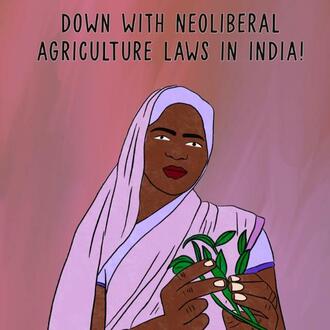.jpg)
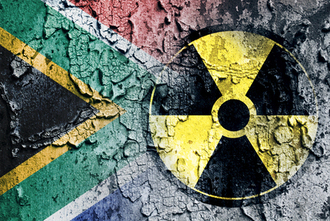
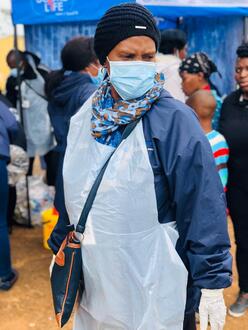.jpeg)
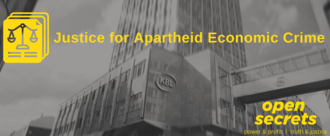
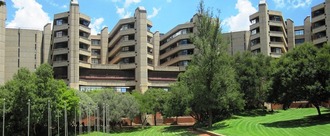
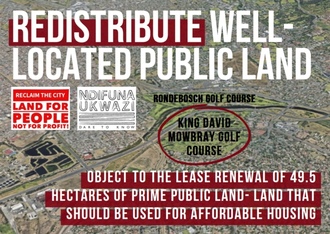
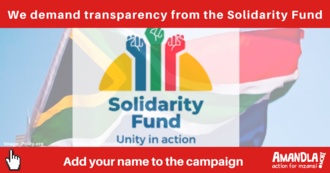
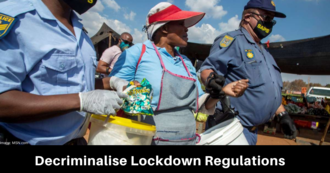.png20200618-20578-rqozqx.png)
